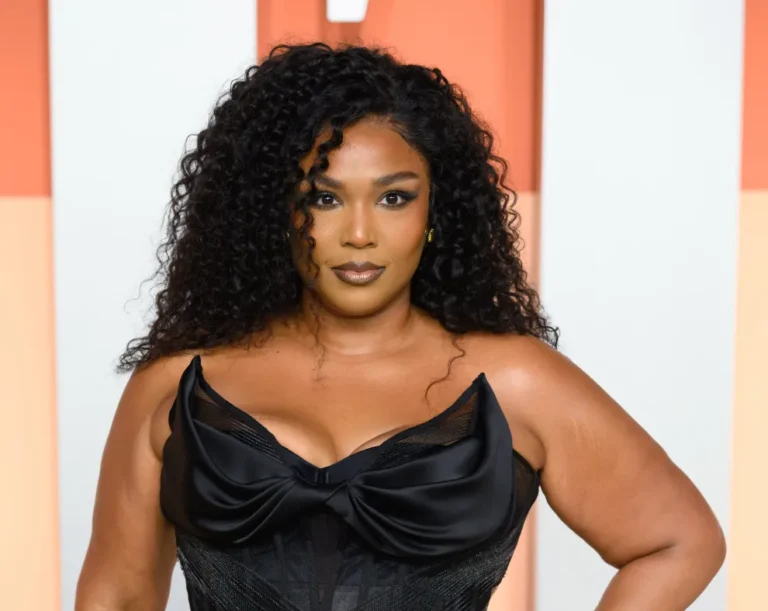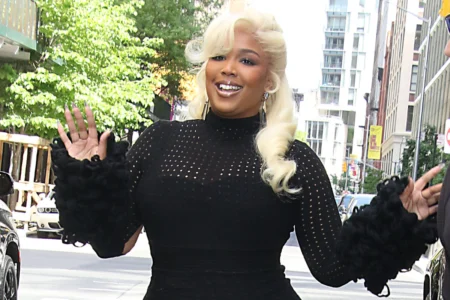Lizzo, known for her unapologetic and bold stance on various topics, has once again stirred the pot—this time with her thoughts on religion.
During a recent Instagram Live session, a fan asked the singer about her spiritual beliefs. Without hesitation, Lizzo responded: “The Bible is a historical document, but it’s lacking factual accuracy in many ways.” Her candid comment quickly spread across social media, prompting both support and backlash.
A Personal and Controversial Perspective on Faith
Lizzo further clarified her stance, explaining that while she doesn’t see the Bible as a literal account, she values its spiritual insights and moral lessons. To her, the Bible serves as a guiding framework for ethical behavior rather than a historical or empirical truth.
This viewpoint, though divisive, aligns with Lizzo’s reputation for challenging societal norms and questioning widely accepted ideologies. While she expressed respect for those who view the Bible as divinely inspired, she also made it clear that her interpretation is deeply personal.
Religion in the Public Eye: A Double-Edged Sword
Her comments ignited a fiery debate among theologians, fans, and cultural critics alike. In an era where public figures are often scrutinized for every word they say, Lizzo’s candid approach to religion highlights the complexities celebrities face when addressing deeply personal yet politically charged subjects.
Faith is inherently personal, but when discussed in public forums, it often becomes a polarizing topic.
The Bible’s Enduring Influence in Western Culture
The Bible’s influence extends beyond religion, shaping Western law, ethics, and literature. Composed over centuries in ancient languages, its content spans from myth to moral doctrine. While many believers view it as divinely inspired, there is an ongoing scholarly debate over its historical accuracy.
Lizzo’s comments are part of a broader generational shift. While her views may be controversial, they reflect a tension between faith and fact that scholars have grappled with for centuries.
A New Generation of Artists Reimagining Faith
Lizzo isn’t alone in questioning the traditional relationship with religion. In recent years, other artists such as Kanye West, Kendrick Lamar, and Billie Eilish have similarly challenged norms around faith and spirituality. West’s Yeezus II tour combined gospel with spectacle, while Lamar’s GNX album explored Christian symbolism with a focus on power and redemption. Billie Eilish has openly expressed skepticism toward organized religion, echoing a broader trend among younger celebrities.
According to a 2025 Pew Research report, 40% of Gen Z now identify as non-religious, signaling a shift in how younger generations view and express their spirituality.
Lizzo’s Views Reflect a Broader Shift in Public Life
Lizzo’s remarks on the Bible are not isolated; they fit into a larger cultural moment. Her willingness to express an unfiltered perspective invites others to question and reimagine what faith means in today’s interconnected, secular world. Some view her comments as irreverent, while others praise her for honesty and authenticity.
This evolving conversation about faith is especially complex for Black women in entertainment. Megan Thee Stallion, for example, often references God as a source of strength, despite her bold and sexually expressive persona. Like Lizzo, she navigates the delicate balance between spirituality and personal freedom.
The Challenges of Being a Celebrity and Spiritual
For artists like Lizzo, there is no clear blueprint for navigating the expectations of both the public and the entertainment industry. Lizzo’s openness about her beliefs is an invitation for fans and critics alike to reflect on religion, spirituality, and how they intersect with modern-day issues.
By speaking candidly about her perspective, Lizzo is fostering an important conversation—one that invites deeper questioning and reimagining of what it means to be faithful in the 21st century.








